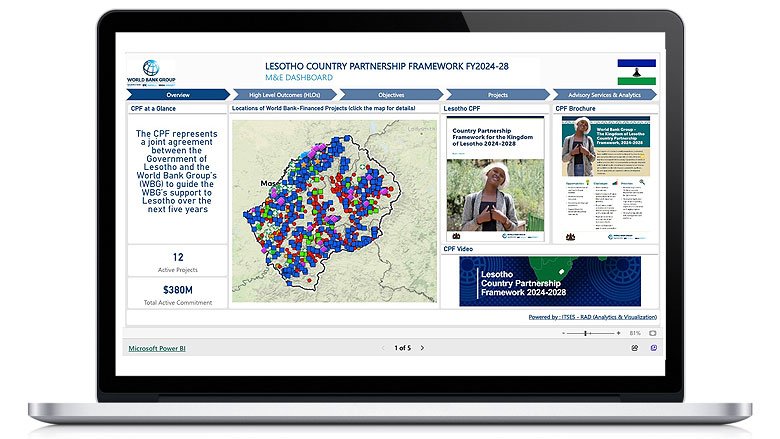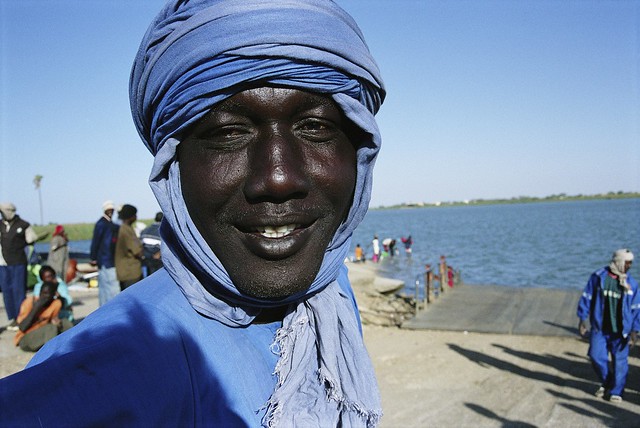Lesotho, a small mountainous nation entirely surrounded by South Africa, is often referred to as the “Kingdom in the Sky.” Home to just over 2.3 million people, it gained independence from Britain in 1966 and remains a constitutional monarchy. The King serves as Head of State with largely ceremonial functions, while executive authority rests with the government. Since November 2022, the country has been led by Prime Minister Samuel Ntsokoane Matekane and his Revolution for Prosperity (RFP) party in coalition with three partners–Movement for Economic Change (MEC), Alliance for Democrats (AD), and Basotho Action Party (BAP) parties.
Classified as a lower middle-income economy, Lesotho recorded GNI per capita of around $1,170 in 2024 (about $3,580 in PPP terms). Strong Southern African Customs Union (SACU) receipts and water royalties supported a fiscal surplus of about 7% in 2024, and public debt declined to about 57% of GDP. Poverty and inequality remain widespread, particularly in rural areas where access to healthcare, education, and clean water is limited. High prevalence rates of HIV/AIDS and tuberculosis further strain the health system and undermine human capital development.
To address these challenges, the government has extended its Second National Strategic Development Plan (NSDP II) through 2028. Its priorities include promoting inclusive, private sector-led growth and job creation; strengthening human capital; expanding enabling infrastructure; and improving governance and accountability systems.
Lesotho’s future depends on diversifying its economy, investing in people, and reinforcing governance structures. Harnessing its unique geography, from hydropower resources to mountain tourism, could provide pathways to resilience and sustainable growth that benefit all Basotho.
ECONOMY
Lesotho’s real GDP contracted by 0.6% in Q1 2025 after nearly 3% growth, 2024), mainly due to declines in mining (-5.9%) and public administration (-9.5%). Other sectors showed robust growth: information and communication (10.9%), hotels and restaurants (8.7%), and other services (8.5%). Headline inflation dropped to 4.4% in July 2025 from 8.2% in Jan. 2024, driven by lower fuel and food prices and a stronger Rand and Loti. The Central Bank cut its policy rate by 75 basis points, from 7.5% in Nov. 2024 to 6.75% in Aug. 2025, aligning with regional rates. Inflation is projected to ease from 6.1% in 2024 to an average of 4.9% in the medium term, reflecting stable energy and food prices, though risks from global trade tensions and geopolitical conflicts remain.
Fiscal performance improved, with the surplus rising from 5.7% of GDP in 2023 to 7.2% in 2024, supported by higher SACU revenues, renegotiated water royalties, and reduced capital expenditures under stricter procurement practices from the Public Procurement Act of 2023. Public debt declined to 56.8% of GDP in 2024 from 61.5% in 2023, mainly due to repayment of the IMF’s Rapid Financing Instrument, redemption of domestic bonds, and clearance of arrears. The risk of external and overall debt distress remains moderate.
The current account balance shifted from a deficit of 6.9% of GDP in 2023 to a surplus of 5% in 2024, driven by increased SACU revenues, higher water royalties, remittances, and lower imports. The outlook depends on the Lesotho Highlands Water Project Phase II, with limited prospects for private investment or job creation to sustainably reduce poverty. Risks are rising, including weaker regional and global growth, uncertain African Growth and Opportunity Act (AGOA) renewal beyond 2025, and domestic political and fiscal instability. Structural reforms to improve the business environment and address infrastructure and human capital gaps remain essential for boosting investment, exports, and employment.
Last Updated: Sep 26, 2025









